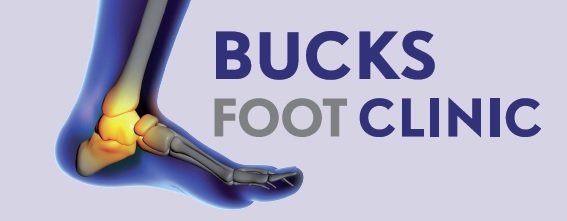When it comes to verrucas, knowledge is key to effective management and treatment. Understanding the different types and variations of verrucas allows for a targeted approach to removal. In this comprehensive guide, we’ll delve into the ABCs of verrucas, explore the best at-home treatments, and highlight professional solutions available at clinics like Bucksfoot.
Types of Verrucas: Unveiling the Variety
Verrucas, also known as plantar warts, manifest in various forms. Each type has unique characteristics and may require different approaches for successful removal.
- Common Verrucas (Verruca Vulgaris):
- Easily identifiable by their rough, raised surface.
- Often develop on the soles of the feet, especially in weight-bearing areas.
- Can have black dots (tiny blood vessels) within the verruca.
- Flat Verrucas (Verruca Plana):
- Characterised by their flat appearance, which makes them more challenging to notice.
- Common in children and may appear on the face, hands, and feet.
- May have a slightly yellowish colour.
- Filiform or Finger-like Verrucas:
- Stand out due to their elongated, thread-like projections.
- Typically found on the face, especially around the eyes, mouth, and nose.
- Require careful removal due to their unique structure.
- Mosaic Verrucas:
- Form clusters of small verrucas, resembling a mosaic.
- Common on the hands and feet.
- May fuse together, making treatment more complex.
- Periungual or Subungual Verrucas:
- Develop around or under the toenails and fingernails.
- Can cause nail changes and distortions.
- Require specialised treatment to prevent nail damage.
At-Home Verruca Treatments: What Works?
Dealing with verrucas at home can be a viable option for those seeking convenience and affordability. However, not all at-home treatments are equally effective. Let’s explore the key strategies and products that have shown promise in the quest for successful verruca removal, keeping in mind the keyword “verruca removal in London.”
Salicylic Acid Products:
- How They Work: Salicylic acid is a common ingredient in over-the-counter verruca removal products. It helps break down the verruca tissue.
- Application: Apply the solution or patch directly to the verruca following the product’s instructions.
- Effectiveness: Salicylic acid treatments have shown effectiveness, but results can vary.
Cryotherapy Kits:
- Concept: Using freezing agents at home to mimic the effects of professional cryotherapy.
- Application: Apply the freeze spray or use a home cryotherapy kit on the verruca.
- Considerations: While convenient, proper application and caution are essential to avoid injury.
Duct Tape Method:
- Procedure: Covering the verruca with duct tape to deprive it of oxygen.
- Application: Change the tape regularly to maintain the treatment.
- Effectiveness: Studies have shown mixed results, and it may take time to see changes.
Apple Cider Vinegar Soaks:
- Process: Soaking the affected foot in diluted apple cider vinegar.
- Duration: Consistent and regular socks are recommended.
- Effectiveness: Anecdotal evidence suggests some benefit, but scientific support is limited.
Key Considerations for At-Home Treatments:
- Consistency is Key: Whether using salicylic acid, cryotherapy kits, or home remedies, consistency in application is crucial.
- Patience: Results may take time, and individuals should not be discouraged if immediate changes are not observed.
- Seek Professional Guidance: If at-home treatments prove ineffective or if there are concerns, consulting a professional podiatrist in London for verruca removal is advisable.
Best Verruca Treatments at Home vs. Professional Care
Choosing the best verruca treatment involves weighing the advantages and disadvantages of each approach. Professional treatments, available at reputable clinics like Bucksfoot, emphasise precision and efficiency.
At-Home Verruca Treatments: DIY Strategies
Advantages:
- Accessibility: Over-the-counter products for verruca removal are readily available.
- Affordability: At-home treatments are generally more cost-effective initially.
Challenges:
- Effectiveness Variances: Success rates may vary, and some individuals may not achieve desired results.
- Time-Consuming: At-home treatments often require consistent and prolonged application.
Professional Verruca Treatments: Precision and Expertise
Advantages:
- Specialised Techniques: Professionals employ advanced methods tailored to specific verruca types.
- Higher Success Rates: Professional treatments often yield quicker and more reliable results.
Challenges:
- Cost Considerations: Professional treatments may involve higher initial costs.
- Time Efficiency: While professional treatments are generally quicker, multiple sessions may be required.
Conclusion
In conclusion, understanding the diverse types of verrucas empowers individuals to choose appropriate treatments. Whether opting for at-home remedies or seeking professional help at Bucksfoot Clinic in London, addressing verrucas promptly ensures optimal foot health. So don’t let verrucas hinder your comfort—explore effective removal options for a step closer to verruca-free feet. Visit our website to learn more.
FAQ
Do verrucas cause pain?
Verrucas may cause discomfort, particularly when situated in weight-bearing regions. Swift intervention can ease any discomfort.
What measures can I take to avoid verrucas?
Maintain proper foot hygiene, refrain from barefoot walks in shared spaces, and promptly attend to any indications of verrucas.
Can children get verrucas?
Yes, children are susceptible to verrucas, and treatment should be tailored to their age and skin sensitivity.
Is it safe to use home remedies like garlic or banana peel for verruca removal?
While some people claim success, these methods lack scientific validation, and professional treatments are recommended.
Can verrucas spread to other parts of the body?
Yes, verrucas can spread, so it’s crucial to avoid touching them and practise good hygiene.
Are over-the-counter verruca treatments effective?
They can be, but professional treatments are often more reliable, especially for stubborn verrucas.
